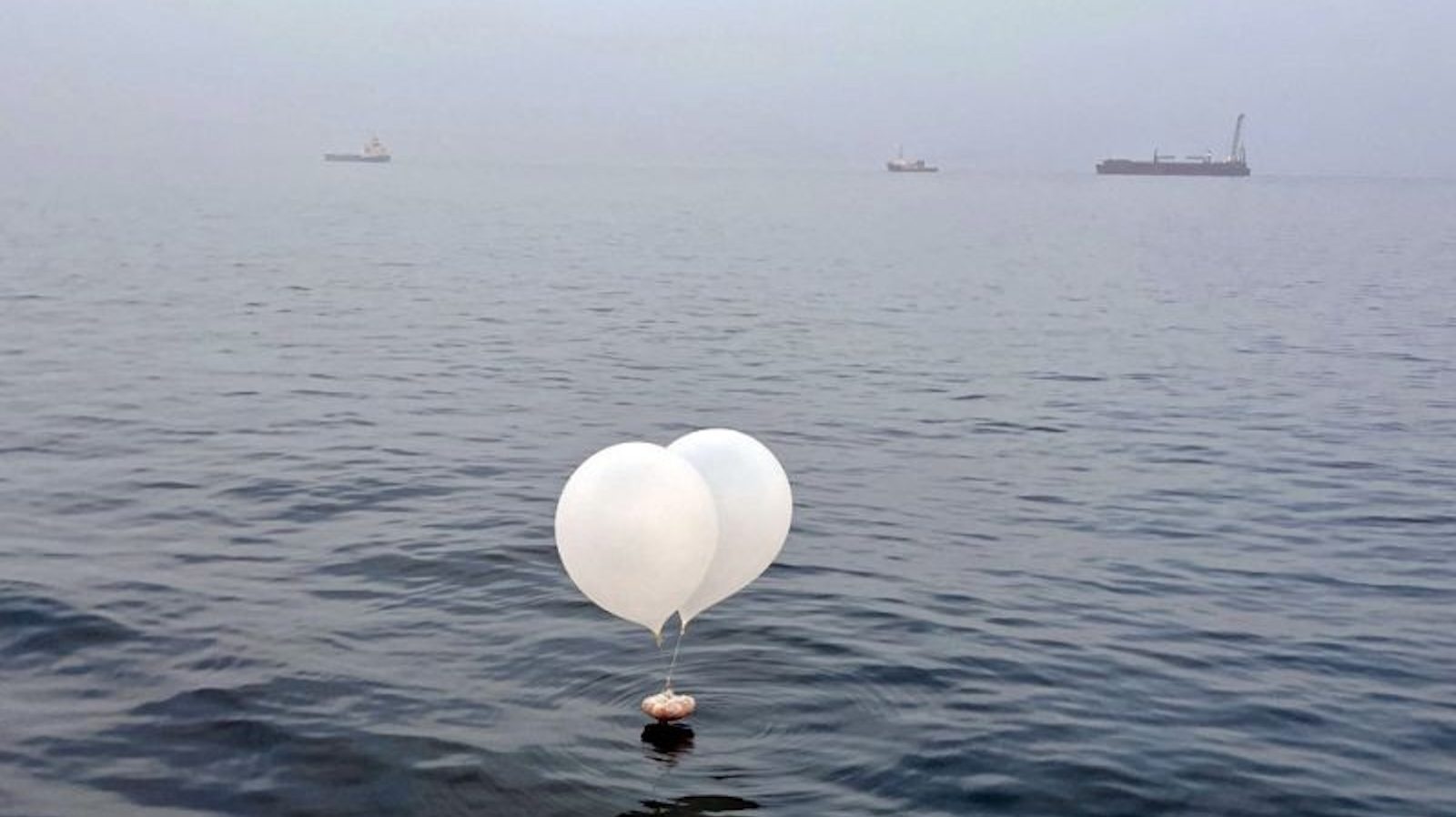In a concerning escalation of tensions between North and South Korea, Pyongyang has sent a new wave of balloons filled with garbage towards its southern neighbor. This action follows South Korea's decision to resume broadcasting anti-North Korean propaganda via loudspeakers in border areas. The North's aggressive response comes amid warnings from Kim Yo Jong, the sister of North Korean leader Kim Jong Un, who has described the broadcasts as a 'prelude to a very dangerous situation.'
Kim Yo Jong has sternly warned that South Korea would face unspecified 'new counteraction' if it continues with the loudspeaker broadcasts and allows activists to send anti-North Korean leaflets across the border. The South Korean Joint Chiefs of Staff (JCS) said North Korea is 'fully responsible' for the current situation and urged the North to 'immediately stop such petty acts as sending waste balloons.'
The South Korean government responded by planning financial aid for damages caused by the North Korean balloons, although there are currently no laws in place to support such measures. Eight cases of damage have been reported, including smashed car windshields, particularly in Seoul metropolitan city and Gyeonggi province. The leader of South Korea's Democratic Party, Lee Jae-myung, has called for an end to the 'childish game' of exchanging garbage-filled balloons and loudspeaker broadcasts, describing it as a situation where both Koreas lose.
Following the actions by North Korea, the South Korean government has suspended a 2018 agreement aimed at reducing military tensions, allowing it to resume propaganda broadcasts and potentially restart military exercises along the border. South Korean activists have also escalated their efforts by sending balloons across the border into the North, carrying anti-Kim Jong Un leaflets and USB flash drives with K-pop and K-dramas.
For decades, North Korea has maintained tight control over information, prohibiting external media and harshly punishing those caught with foreign contraband. However, limited openness has allowed some South Korean cultural elements to seep into North Korea, especially in the late 2010s when diplomatic relations improved briefly.
The escalation has raised concerns of possible military retaliation, prompting calls for de-escalation. Analysts warn that the tension between the two Koreas could lead to armed conflict. The South Korean authorities and citizens have been advised to stay away from the balloons and report their presence to the authorities.
- Kim Yo Jong's rise to power began in 2012 when she assumed a position in North Korea's National Defense Committee. By November 2014, she was appointed deputy director of the Workers' Party's Propaganda and Agitation Department and subsequently its head in 2015, making her the 'most powerful woman in North Korea.'
- Her influence extended further when she became an alternate member of the ruling party's Politburo in October 2017. She led North Korea's delegation to the Winter Olympics in South Korea in 2018, where she delivered an official invitation from her brother to then South Korean President Moon Jae-in to visit Pyongyang.
- The South Korean Joint Chiefs of Staff emphasized that their broadcasts aim to inform North Korean soldiers and residents about the 'reality of North Korea' and the development of South Korean culture. This psychological warfare tactic dates back to the Korean War and has historically infuriated Pyongyang, which has threatened to target the loudspeakers with artillery.






